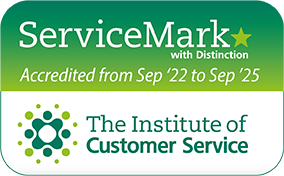If you have received an e-mail asking you to complete a survey from the ICS, please click here to read more about this request.
Many of our mortgage members – particularly those who are coming to the end of their fixed term product – ask us what exactly remortgaging is.
Misunderstood, remortgaging is often unfairly dismissed as ‘confusing’, when actually it is a lot simpler than you may first realise.
So, if you are new to the remortgaging world, below you can find a breakdown of the most common questions we are asked to help determine if remortgaging is the right route for you.
In simple terms: remortgaging is when you choose to replace your initial mortgage with another without moving house. This tends to happen when a fixed-rate period ends and you are about to move to your lender’s standard variable rate.
How easy is it to remortgage?
The remortgaging process is a lot easier than many mortgage holders may first believe, especially when compared to the initial purchase process. For example, there’s no property chain to worry about, no house to buy or sell, no contacts to exchange and the general legal process is a lot smoother.
Can I remortgage if I have a bad credit history?
Yes you can, but we recommend taking steps to strengthening it to help improve the chance of your new mortgage application being approved. If you’re unsure, speak to an independent financial adviser for guidance and next steps.
Can I remortgage a Shared Ownership property?
Yes you can as many lenders offer Shared Ownership-specific remortgages. By switching your mortgage, you may be able to purchase a further share of your property is a larger loan is approved (called staircasing). This will ultimately reduce the amount of rent you are paying.
Be aware: Shared Ownership terms and conditions may vary therefore, make sure you inform your housing association of your plans to remortgage.
Visit our Shared Ownership remortgage products to find out if it is right for you.
When can I remortgage?
Comparison site, uSwitch, suggests that those interested in changing mortgage deal should look at what’s on offer no more than three months before their current one expires. This will give you enough time to do your research and complete the application before a standard variable kicks in and (potentially) shocks your bank account.
You should avoid looking to remortgage too far in advance as you may have early repayment fees (ERC) to pay. Always check the small print of your current mortgage so you don’t get caught out.
How long does it take to remortgage?
Remortgaging is normally a lot quicker than first anticipated – especially if you’re sticking with your current lender - a basic switch is seemingly straight forward. If you’ve take steps to move your mortgage to a different lender, it may take a little bit longer as there may be a couple of extra hoops to jump through.
Is remortgaging worth it?
There are lots of reasons why remortgaging could be the right fit for you. For example:
-
Your current mortgage deal, such as a fixed rate, is about to come to an end and move into a variable rate.
-
You want to lower your monthly payments.
-
You want to pay more of your mortgage off faster.
-
You want to take advantage of better rates in the market.
-
You want to move house.
-
You want to release equity to fund projects such as an extension to your current property.
Remember: if you find mortgage jargon confusing then you’re not alone. Visit our full mortgage glossary for a complete breakdown of the terms you need to know. Alternatively, speak to one of our qualified mortgage advisers who will always speak to you in a way you understand.
If you are looking to remortgage, please contact us and arrange an appointment. We provide a tailored and individual service, and we are available for Saturday appointments.
YOUR MORTGAGE IS SECURED ON YOUR HOME. THINK CAREFULLY BEFORE SECURING OTHER DEBTS AGAINST YOUR HOME. YOUR HOME MAY BE REPOSSESSED IF YOU DO NOT KEEP UP REPAYMENTS ON YOUR MORTGAGE.






